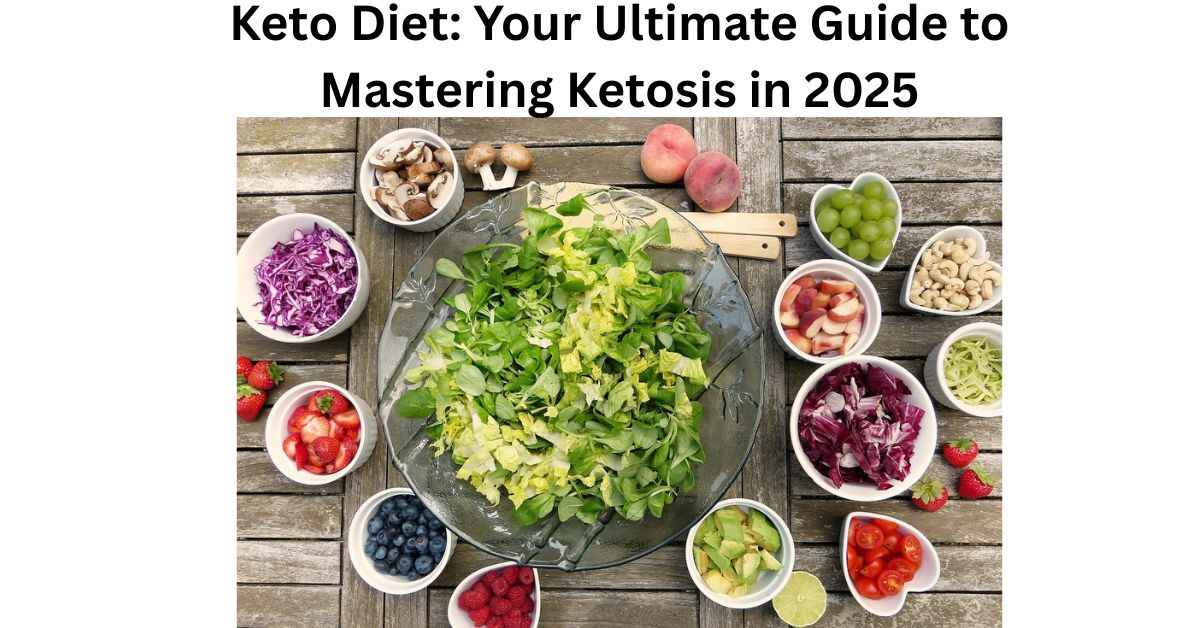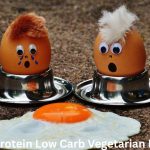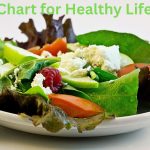Welcoming you to Healthy Diet Balance, your go-to global source of nutrition information! If you’re interested in keto, you’ve come to the right place.
keto diet and would like to know how it can impact your health, then you’re in the right place.
No matter if you’re located situated in USA, Europe, Asia or anywhere else We’ll look at the science behind keto, its benefits, challenges, as well as the steps you can take to help keto work for you.
This article is unique and offers new perspectives that will inform and encourage. Let’s explore keto diet keto diet and uncover its potential by 2025!
Why the Keto Diet Is Trending Worldwide
It is said that the keto diet has become a global phenomenon, and millions of people are taking up its high-fat, low-carb strategy to shed weight as well as better energy levels and better overall health.
According to a report from 2023 from the World Health Organization (WHO), keto diets that are low in carbs are popular with 10-15 percent of people worldwide and are influenced by trends in social media and endorsements from celebrities.
What makes keto so effective, and is it the right choice for you?
This guide will help you understand the keto lifestyle through a fresh eye, combining global information with practical advice to ensure that you are prepared to navigate this new diet.
Keto’s Global Appeal
In everything from keto-friendly sushi dishes in Japan to avocado-based meals in Mexico, the keto diet can be adapted to a variety of food styles, making it a flexible choice for anyone around the world. We will discuss how to adapt it to your preferences.
Engaging Start: Your Keto Journey Begins
Imagine losing those stubborn pounds and feeling more energetic every day. Could keto have the answer to your success?
Tell us about your health goals in the comments section, and let’s begin our journey in tandem!
visit-Keto Diet Pros and Cons: Your Comprehensive Guide for 2025
The Science Behind the Keto Diet
The understanding of how to follow the keto diet is a matter of science and is based on the way that your body processes food.
Let’s take a look at the information taken from the National Institutes of Health (NIH) as well as other studies.
What Is the Keto Diet?
A ketogenic diet a high-fat fat moderate-protein, low-carb program designed to move your body into ketosis, a metabolic state in which fat, not carbs, is the primary source of energy:
- Chart of Macronutrients: 70-75 percent fats, 15 to 20 Protein 5-10% carbohydrates (20-50g daily) as per Harvard Health.
- Ketosis: The process occurs when you eat fewer carbs, the liver creates ketones, which are derived from fat. They fuel your brain and body.
How Ketosis Works
- Carb reduction: Limiting carbs to 20-50g/day will deplete glycogen stores over a period of 1-2 days.
- Ketone Production: Your liver turns fatty acids to ketones. Typically, it takes two to three days.
- Changes in energy: Ketones replace glucose and provide a constant energy supply, as described in 2022’s Journal of Clinical Endocrinology & Metabolism study.
Nutritional Impact
- Fats: Choose healthy fats like avocados, olive oils and nuts.
- Proteins: include eggs, fish, chicken along with Tofu (no pork, unless requested).
- Carbs: Concentrate on low-carb vegetables like broccoli, spinach and cauliflower.
Scientific Evidence
- Fat Loss 2023: An American Journal of Clinical Nutrition study showed that keto dieters lost 7-10% body weight over the course of six months, which was more than low-fat diets.
- Diabetes Management: The American Diabetes Association notes keto can reduce HbA1c levels by 0.5-1 percent.
- neurological benefits: Utilized since the 1920s to treat epilepsy, it has reduced seizures in 50% of certain sufferers (NIH).
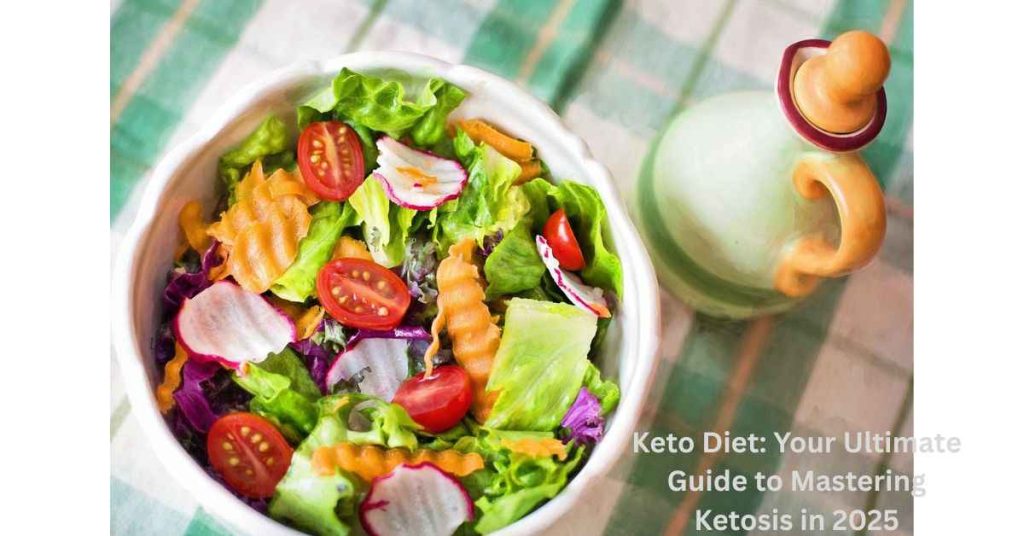
Key Benefits of the Keto Diet
Dietary keto diet provides a variety of advantages, which makes it an appealing option for many people:
- Quick Weight Loss: Ketosis is a fat-burning process that burns calories effectively, and reduces hunger hormones such as ghrelin according to an Lancet Diabetes & Endocrinology study.
- Better Blood Sugar: Stabilizes sugar levels, which aids in Type 2 diabetes management.
- Enhanced Mental Clarity: Ketones provide a steady brain fuel that is capable of increasing focus and decreasing the fog in the brain.
- Higher Energy Levels: It helps to prevent blood sugar spikes and provides an energy boost throughout the day.
- Heart Health Potential: can improve triglycerides as well as HDL cholesterol, but the long-term effects may vary (Harvard Health).
Global Perspective
In areas such as India where the rates of diabetes are high keto’s benefits for blood sugar are highly regarded, whereas in the USA weight loss drives its popularity.
Engaging Tip: Draw an energized, more energetic you. Share your most important health goal by leaving a comment!
Challenges of the Keto Diet
However, despite its advantages even though it has its benefits, it’s not without its challenges. keto diet can be a challenge:
- Keto flu: The initial symptoms of headaches, fatigue and irritability impact 20-50% beginners (NIH).
- Nutritional Gaps: Insufficient intake of fruits and vegetables can cause deficiency in vitamin C as well as K (WHO).
- Digestive Issues: Reduced fiber can cause constipation–counter with high-fiber keto foods like chia seeds.
- Long-term concerns: potential stress on the kidneys and high cholesterol levels With limited 5-plus years of information.
- Social Problems: Dining out, or eating out at cultural restaurants (e.g. rice-based cuisines from Asia) could be difficult.
Informative Tip: Have had to deal with keto issues? Let us know about it below!

How to Start the Keto Diet Successfully
Beginning the keto diet requires preparation in order to maximize the benefits and reduce disadvantages.
Step 1: Assess Your Goals and Health
- Goals: weight loss energy, energy, or medical requirements (e.g. epilepsy)?
- medical check: Contact a physician in particular if you suffer from kidney or diabetes.
- Lifestyle fit: Are you prepared to meal plan and tracking your carbs?
Step 2: Build Your Keto Plate
- Fats (70-75 70-75 %): Olive oil butter, coconut oil and nuts.
- Proteins (15-20 15-20%): Chicken, eggs, fish and tofu (no pork, unless otherwise requested).
- Carbs (5-10%): Leafy greens, berries, cauliflower.
Step 3: Sample Daily Plan
- Breakfast (400-500 Kcal): Eggs with avocado and spinach.
- Lunch (600-800 Kcal): Grilled salmon with asparagus.
- Dinner (500-700 Kcal): Chicken stir-fry with rice made of cauliflower.
- Snack (150-250 Kcal): Cheese cubes or almonds.
Step 4: Ease the Transition
- Hydrate (3-4 3-4 liters per day) to fight keto flu.
- Utilize electrolyte supplementation (e.g. sodium, sodium or magnesium).
- Begin slowly, reducing carbs over the course of a week.
Engaging Tip: Try a “Keto Starter Week”-share your Day 1 meal on social media.
7-Day Keto Diet Plan for Beginners
Here is an original keto diet strategy to start your journey. Avoid pork as demanded, with international flavors. Calorie count is approximate.
Day 1
- Breakfast: Eggs made with spinach and avocado (450 calories).
- Lunch: Grilled chicken served and broccoli (700 kcal).
- Dinner: The menu includes salmon and butter sauce (550 kcal).
- Snack: Almonds (150 kcal).
Day 2
- Breakfast: Keto smoothie (coconut milk, berries) (400 kcal).
- Lunch: Beef stir-fry and zucchini (750 kcal).
- Dinner: Cod served and olive oil with a dressing (600 calories).
- Snack: Olives (120 kcal).
Day 3
- Breakfast: Omelets of cheese with fresh herbs (450 calories).
- lunch: Turkey with kale (700 kcal).
- Dinner: Lamb served with cauliflower mashing (550 calories).
- Snack: Macadamia nuts (150 kcal).
Day 4
- Breakfast: Chia pudding served made with coconut cream (400 Kcal).
- Lunch: Shrimp and avocado salad (750 kcal).
- Dinner: Steak served with asparagus (600 kcal).
- Snack: Walnuts (120 kcal).
Day 5
- Breakfast: Keto Pancakes (almond flour) (450 kcal).
- Lunch: Tuna and spinach (700 kcal).
- Dinner: Thighs of chicken with broccoli (550 kcal).
- Snack: Brazil nuts (150 kcal).
Day 6
- Breakfast: Beef sausage (pork-free) with eggs (400 kcal).
- Lunch: Beef and Brussels sprouts (750 kcal).
- Dining: Mackerel salad with olive oil (600 kcal).
- Snack: Cheese sticks (120 kcal).
Day 7
- Breakfast: Avocado and smoke-smoked salmon (450 kcal).
- Lunch: Lamb along with rice from cauliflower (700 calories).
- dinner: Turkey patties with greens (550 kcal).
- Snack: Pecans (150 kcal).
Customization Tips
- You can adjust portions to meet your calorific requirements.
- Include spices (e.g. turmeric) to add a touch of culture.
- Check for ketosis using stripping urine or using a KetoMojo device.
Engaging Tip: Share your day 1 meal on [X] using #KetoChallenge!
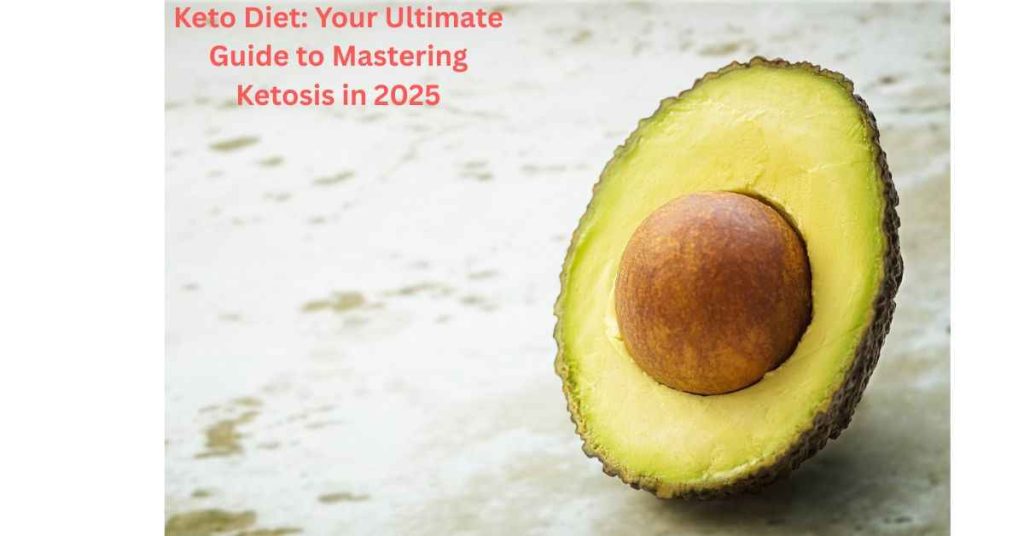
Common Myths About the Keto Diet
Let’s tackle myths and facts to dispel the confusion about what is known as the keto diet.
- Myth 1: Keto Is Just About Eating Fat
- Fact: Balance is important. Overloading with fats and carbs without control slows ketosis (Harvard Health).
- Myth 2: It’s Unsafe Long-Term
- Fact: is safe for a lot of people with monitoring, however, consult with a physician (NIH).
- Myth 3: You Can’t Eat Veggies
- Fact: low-carb vegetables like spinach are keto-friendly staples.
Engaging Tip: Ever heard of a keto-related myth? Comment below!
Practical Tips to Thrive on the Keto Diet
- Food Prep: Batch cook keto-friendly meals (e.g. casseroles, etc.)) to make it easier on busy days.
- Get Stocked Up: Make sure you have keto staples such as eggs, avocado and coconut oil in your pantry.
- Eat Smart at Dine-Out: Go for grillable meats and veggies with sides that are vegetarian. Skip the bread.
- track Macros: Utilize apps such as MyFitnessPal to stay on track.
- Be flexible: If keto seems too rigid, consider the cyclical keto method (e.g. 5 keto days and two carb-free days).
Expert Insight
The Dr. Aisha Khan, a nutritionist with over 15 years of experience, says “The keto diet thrives on consistency–focus on quality fats and listen to your body.”
Keto Diet and Technology in 2025
The keto diet is made easier with technology:
- Applications: Carb Manager tracks macros and recipes.
- Wearables: Devices such as Fitbit measure activities and ketone levels.
- Community Online: Find keto communities on [X or Reddit to get help.
Engaging Tip: Have you found an app that you like for keto? Tell us about it!
FAQs on the Keto Diet
- What is the time it will take until my ketosis is complete?
- A: Usually between 2-4 days, dependent on the amount of carbs reduced.
- Q: Can I do keto as a vegetarian?
- Answer: Absolutely, including eggs, tofu, and dairy products that are high-fat.
- Q Is keto safe for all?
- A: Not suitable for people who have kidney problems. Consult a physician.
Conclusion: Is the Keto Diet Right for You?
The keto diet can be a potent path towards health that ranges from weight loss to mental acuity.
However, it’s not a one-size-fits-all approach. Here at Healthy Diet Balancing we’re here to help you through knowledgeable, informative content.
Check out our 7-day program to share your progress and achieve your goals by 2025. Check us out for more information as well as follow us on- Healthy diet balance.
